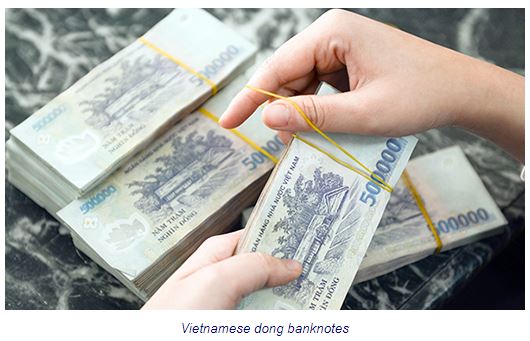Vietnam escapes US’s likely currency manipulator blacklist
The United States is likely not to include Vietnam in a twice-yearly report of currency manipulators based on new data the country provided the Treasury Department, Bloomberg reported, citing a person familiar with the matter.
In recent weeks, Vietnam provided additional data aimed at showing the US Treasury it wasn’t holding down the value of the dong.
Vietnamese Deputy Prime Minister and Minister of Foreign Affairs Pham Binh Minh visited to Washington on May 22-23, where he met with a number of US officials, including Treasury Secretary Mnuchin on Thursday.
According to a statement of the Vietnamese Ministry of Foreign Affairs, at the meeting with Minh, Mnuchin said trade and investment would be one of key pillars in the bilateral relations, and hailed Vietnam for sharing more information and tackling pressing economic and financial problems.
Treasury issues a report twice annually on foreign currencies. In the latest report, the number of countries under scrutiny for possible manipulation will rise to about 20 from 12, after Treasury altered one of the three criteria it uses to test for manipulation.
Current account surplus was a factor that prompted Treasury to examine for currency manipulation. For the current report, they lowered the threshold of current account surplus to 2% of gross domestic product from 3%.
The US uses three criteria to determine if a country is a currency manipulator. Besides the current account surplus criterion, two other criteria are a bilateral goods trade surplus with the U.S. of at least $20 billion; and intervention in the foreign-exchange market that exceeds at least 2% of GDP.
The report was officially due to Congress in April. Mnuchin initially expected to meet that deadline and submitted the completed report to the White House for sign-off in early April. But the report has since been delayed and a date for its release hasn’t been announced.


 Thailand
Thailand




